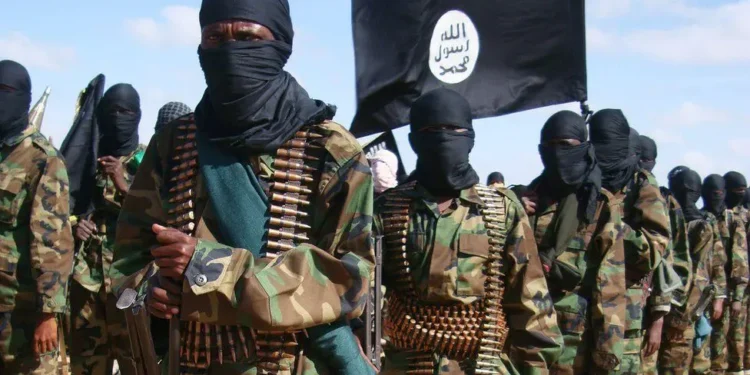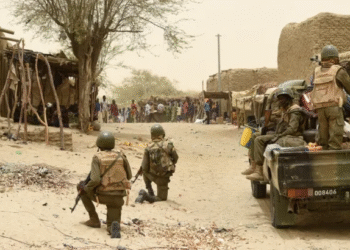In the complex and volatile geopolitical landscape of West Africa, the interplay between counter-terrorism measures and international law is of great importance. Some countries in the region such as Niger, Mali, and Burkina Faso which are targets of attacks by various terrorist groups, face a complex task in their counter-terrorism efforts: They must implement effective counter-terrorism strategies, whilst at the same time, adhering to international legal principles on the prevention of cross-border harm in neighbouring countries during their counter terrorism operations. Various principles of international law emphasize this responsibility in the adoption and implementation of counter-terrorism measures by countries under siege by terrorist groups.
International Legal Principles of Counter-terrorism
Sovereignty: This fundamental principle in international law asserts that countries have the right to govern themselves without external interference. This principle is enshrined in the United Nations Charter, particularly in Article 2(4), which prohibits the threat or use of force against any state’s territorial integrity or political independence. This means that any military actions, such as cross-border raids or drone strikes to combat terrorist groups in any country, must be carefully planned and executed to avoid encroaching on the sovereignty of neighboring countries or worse still harming unarmed, non-combatants in those countries. Violating laws relating to another country’s border security, could be easily seen as an act of aggression and this has the potential to create tensions between countries and possibly to serious conflict as happened in the case of Mali neighbouring and Mauritania.
The Duty to Prevent Transboundary Harm: According to the United Nations, transboundary harm means harm caused in the territory of or in other places under the jurisdiction or control of a State other than the State of origin, whether or not the States concerned share a common border. “Harm” means harm caused to persons, property or the environment. The State of origin shall take all appropriate measures to prevent significant transboundary harm or at any event to minimize the risk thereof. States concerned shall cooperate in good faith and, as necessary, seek the assistance of one or more competent international organizations in preventing significant transboundary harm or at any event in minimizing the risk thereof.
Countries are obligated to ensure that their actions for their safety do not cause harm to their neighbours. This duty is also articulated in the International Law Commission’s (ILC) Articles on the Prevention of Transboundary Harm from Hazardous Activities (2001). Although primarily focused on environmental harm, the principle is broadly applicable and emphasizes the requirement that all states must exercise due diligence in preventing actions within their jurisdictions, which have the potential to cause harm beyond their borders.
Human Rights Obligations: Counter-terrorism measures must respect human rights standards. The International Covenant on Civil and Political Rights (ICCPR), which many West African states have ratified, requires states to respect and ensure the rights of all individuals within their territory and jurisdiction. This includes the obligation to protect individuals from terrorism while also ensuring that counter-terrorism measures do not violate human rights.
The Counter-terrorism Strategy of ECOWAS
On 14th May 2024, The ECOWAS Counter-Terrorism Strategy Implementation Plan was established at the 42nd Extraordinary Session of the Authority of ECOWAS Heads of State and Government held in Accra, Ghana. The Strategy Implementation Plan requires that any detention, arrest, imprisonment, or forced expulsion, deportation and other sanctions against suspected terrorists, are done strictly in accordance with the dictates of international law. To this end, all Member States shall ensure that the arrest, detention, forced expulsion, imprisonment or even targeted killing of terrorist suspects, are conducted through due process of the law. Respect for human rights is crucial for the internal conduct of counter-terrorism measures and for preventing transboundary harm.
In a West African country for instance, arbitrary mass arrests of suspected terrorists during counter-terrorism operations targeting suspected terrorist networking could lead to human rights violations. Where governments fail to ensure that those arrested on suspicion of belonging to terrorist networks and organizations are not detained arbitrarily, the suspected terrorists together with their communities, may flee to neighbouring countries to seek asylum. This influx can strain the resources of neighbouring states, and has the potential to destabilize them and eventually, spread the conflict beyond the borders of those states to other countries.
Legal Frameworks in West Africa
West Africa has been a theatre of vigorous terrorist activity, with groups like Al-Qaeda in the Islamic Maghreb (AQIM), the Movement for Unity and Jihad in West Africa (MUJAO), Boko Haram, Ansar Dine, Ansar Sharia, and Jama’atul Ansarul Musilimina Fi Biladis Sudan (JAMS- Ansaru) and the Islamic State in the Greater Sahara (ISGS) operating in the region. In responding to the activities of these terrorist groups in the region, regional cooperation and adherence to the requirements and principles of international law in relation to terrorism and terrorist activities, are crucial.
Economic Community of West African States (ECOWAS): ECOWAS plays a pivotal role in fostering regional cooperation against terrorism. The ECOWAS Counter-Terrorism Strategy, adopted in 2013 and The ECOWAS Counter-Terrorism Strategy Implementation Plan established in 2014, emphasize the need for member states to cooperate in intelligence sharing, joint military operations, and adherence to human rights and rule of law principles. The strategy highlights the importance of preventing actions that could destabilize neighbouring countries.
African Union (AU) Instruments: The African Union’s Convention on the Prevention and Combating of Terrorism (1999) and its 2004 Protocol highlight the need for member states to ensure that their counter-terrorism measures do not adversely affect other states. The AU emphasizes respect for fundamental human rights and freedoms in the fight against terrorism.
International Cooperation and Legal Instruments: West African states are also party to various international treaties and conventions that influence their counter-terrorism strategies. For instance, the United Nations Global Counter-Terrorism Strategy and relevant Security Council resolutions (such as UNSC Resolution 1373) call for comprehensive measures to combat terrorism, including international cooperation and respect for international law.
Conclusion
The principles of international law offer a key foundation for West African states as they combat terrorism. These legal norms foreground the importance of preventing cross-border harm, respecting state sovereignty, and upholding human rights. By adhering to these principles, states are guided toward a more balanced and cooperative approach to counter-terrorism. Counter-terrorism efforts must be carefully designed to ensure that actions taken within one country do not inadvertently destabilize neighbouring states. This requires robust coordination and communication among West African countries.
While significant challenges persist, such as weak state institutions, political instability, and the complex nature of terrorist threats, adherence to these principles of international law is crucial. By following these guidelines, West African states can enhance regional stability and ensure that their counter-terrorism efforts are aligned with the broader goals of peace and security.
Source: CISA Analyst
REFERENCES
Economic Community of West African States. (2014, May 14). The Ecowas Counter Terrorism Implementation Plan. https://ecowas.int/. http://www.ecowas.int/
United Nations Human Rights Committee General Discussion on the preparation for a General Comment on Article 6 (Right to Life) of the International Covenant on Civil and Political Rights (ICCPR). (2018, August 17). https://doi.org/10.1163/2210-7975_hrd-5555-2015002United Nations Treaty Collection. (n.d.). https://treaties.un.org/































